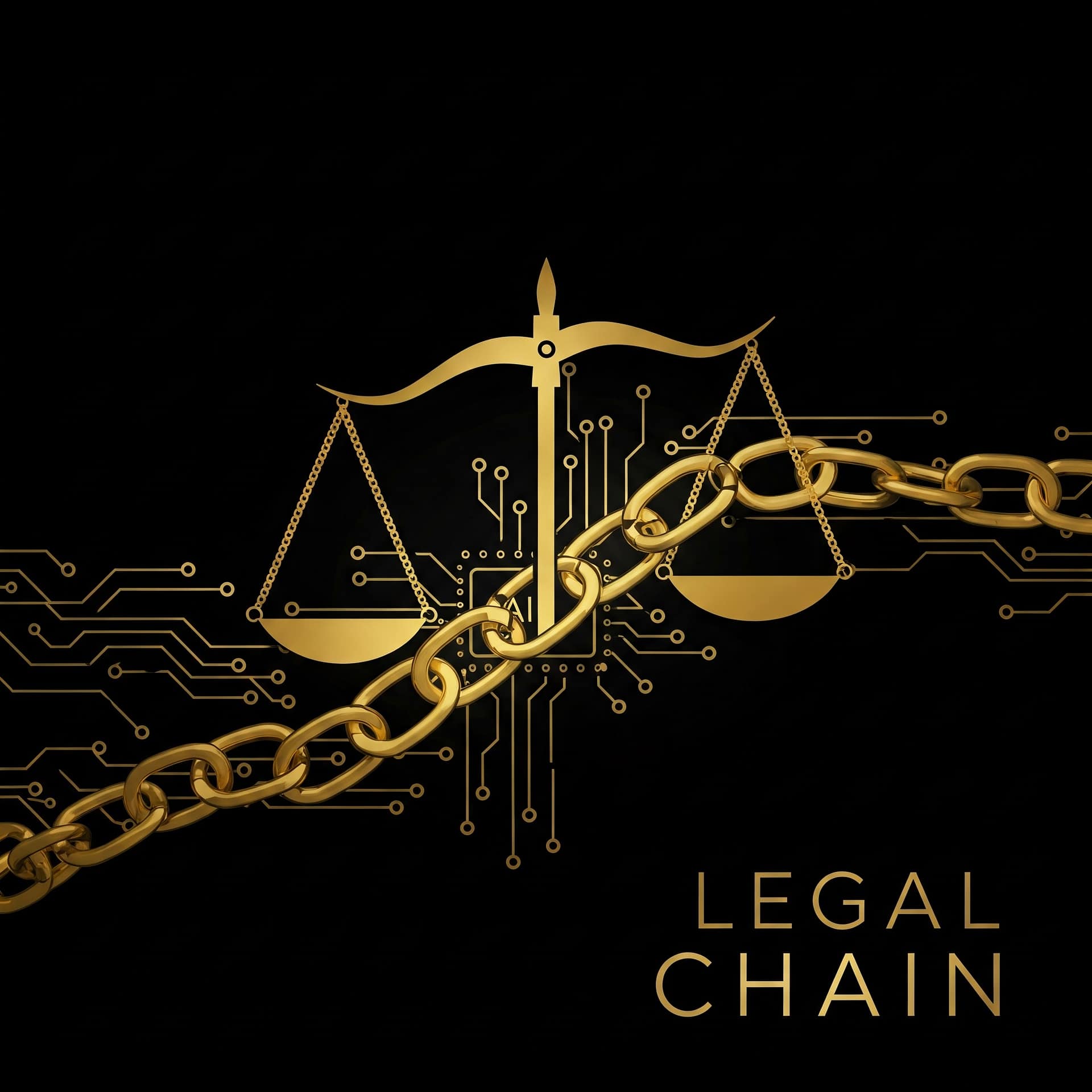Frequently Asked Questions
Answers about AI legal drafting, contract review, and the Trust Layer
Everything you need to know about how Legal Chain helps you draft, review, and manage legal documents faster—with optional integrity verification for tamper-evident workflows.
Getting started
What is Legal Chain?
Legal Chain is a legal workflow platform designed to help individuals, startups, SMBs, nonprofits, and legal teams create and analyze documents faster. It supports AI-powered drafting and review, and can include a Trust Layer for integrity verification to reduce document tampering risk.
Who is Legal Chain for?
- Individuals: understand and organize personal agreements.
- Startups/SMBs: move faster on NDAs, MSAs, SOWs, vendor/customer contracts.
- Nonprofits: simplify agreements and governance docs.
- Attorneys/Paralegals: accelerate first drafts and issue spotting.
- In-house/Enterprise: improve intake, review consistency, and auditability.
Is Legal Chain a law firm or legal advice?
No. Legal Chain is a software platform that can help you draft and understand documents, but it does not replace a licensed attorney. Use professional review for important legal matters.
How do I join the beta?
You can sign up for the beta here: https://legal-chain-frontend.vercel.app/. If you’re evaluating for a team, start with one workflow (e.g., NDAs or vendor contracts) and scale from there.
AI drafting & review
What types of documents can Legal Chain help with?
Common use cases include NDAs, MSAs, SOWs, independent contractor agreements, employment offer letters, partnership agreements, privacy policies (templates), and other business contracts. Availability may vary by product tier and region.
How accurate is AI contract review?
AI review is best used for speeding up first-pass analysis (issue spotting, clause detection, summaries, and suggested edits). It can miss context or jurisdiction-specific nuances, so for high-stakes decisions, attorney review remains the gold standard.
Can Legal Chain extract clauses, suggest edits, or generate redlines?
Legal Chain can help identify key clauses (e.g., indemnity, limitation of liability, termination, confidentiality), summarize them in plain English, and propose improvements. For redlines, teams often use AI suggestions plus human review to finalize language.
What is contract risk scoring?
Risk scoring is a structured way to rate contract terms based on how they could impact your business (financial, operational, legal, and compliance risk). It helps prioritize what to negotiate and what to escalate for review.
Trust Layer (integrity)
Why does Legal Chain use a Trust Layer for legal documents?
The Trust Layer is designed to help prove that a document hasn’t been altered after a point in time. This is useful for audit trails, compliance, negotiations, and internal controls—especially when multiple parties exchange versions.
Does Legal Chain store my documents on a blockchain?
Typically, systems like this do not store the full document on-chain. Instead, they store a cryptographic fingerprint (a hash) and metadata so you can later verify whether a file matches the original fingerprint. Your document can remain in your chosen storage.
How does integrity verification work?
- You upload or finalize a document.
- The system computes a cryptographic hash (e.g., SHA-256) as a unique fingerprint.
- That fingerprint can be recorded with an immutable timestamped reference.
- Later, you can re-check the document by recomputing the hash and comparing results.
If the hashes match, the file is the same as the anchored version. If not, it has changed.
What’s the practical benefit for teams?
- Version confidence: detect unexpected changes.
- Audit readiness: defensible records for reviews.
- Workflow integrity: reduce “which file is final?” confusion.
- External sharing: validate what was sent vs. what was received.
Security & privacy
How does Legal Chain handle data privacy?
Legal Chain is built to support modern privacy expectations (e.g., least-privilege access, encrypted transport, and clear data handling practices). If you need specific compliance alignment (SOC 2, GDPR/CCPA), use the platform’s security documentation and ensure your internal policies match your risk profile.
Do you train AI models on my documents?
Legal Chain’s approach is to minimize data exposure and limit usage to providing the service. If you require strict controls (e.g., “no training” guarantees, data residency, enterprise terms), request an enterprise configuration and written terms before uploading sensitive materials.
Can we use our own storage or keep documents in our system?
Many teams prefer to keep documents in their existing cloud storage and use Legal Chain for analysis and integrity checks. This supports “bring your own storage” workflows where your data stays under your control.
What access controls should we use for sensitive contracts?
- Use role-based access (admin, reviewer, requester).
- Restrict sharing links and enforce expiration where possible.
- Log document access and important workflow events.
- Use attorney review for high-stakes matters.
Pricing & beta
Is Legal Chain free during beta?
Beta access is typically offered to help gather feedback and improve workflows. Availability and included features can vary during the beta period. Join here: https://legal-chain-frontend.vercel.app/.
Do beta users get a discount?
Legal Chain may offer beta incentives (like discounts on annual plans) for early adopters who provide feedback. Check the latest beta offer at sign-up.
How should a team evaluate Legal Chain?
- Pick one workflow (e.g., NDAs or vendor contracts).
- Define a “success” checklist (time saved, fewer misses, cleaner handoff to counsel).
- Run a short pilot with real documents (sanitized if needed).
- Decide on rollout + governance (permissions, review rules, storage).
How do I contact Legal Chain?
Use the contact options on legalcha.in/contact or send feedback through the beta experience after you sign up.
Still have questions?
Join the beta, tell us your workflow, and we’ll prioritize the features that reduce review time while improving trust.
